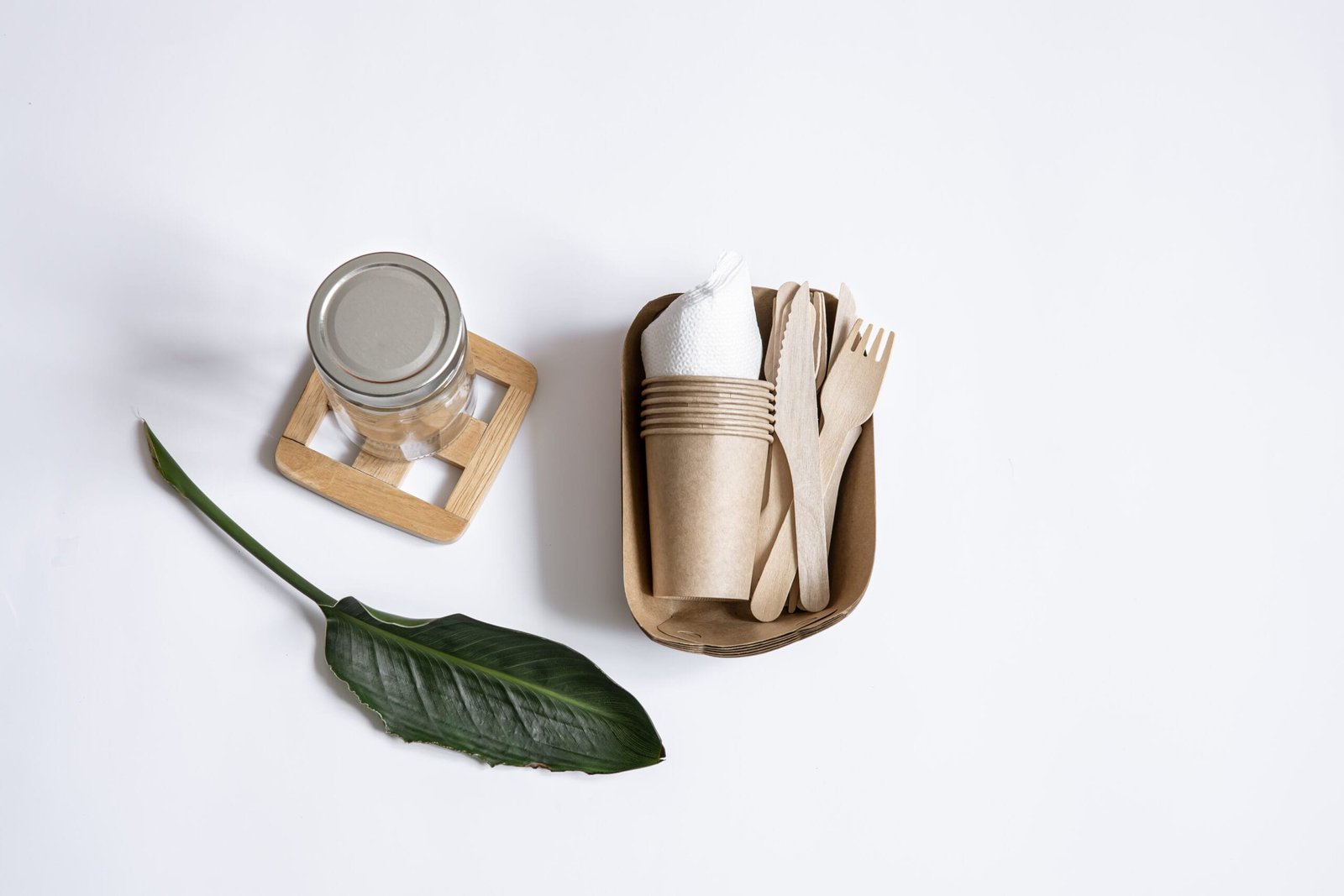Plastic has become ubiquitous in modern society, but its extensive use has resulted in a worldwide environmental crisis. Conventional plastics are derived from finite resources like petroleum and natural gas, and they persist in the environment for centuries before breaking down. Consequently, plastic waste has accumulated in various ecosystems, including landfills and oceans, causing significant harm to wildlife and natural habitats.
Furthermore, the manufacturing process of plastic products releases greenhouse gases, exacerbating climate change. The development and adoption of sustainable alternatives to traditional plastics have become increasingly crucial as society seeks to reduce its dependence on fossil fuels and mitigate the environmental consequences of consumption patterns.
Key Takeaways
- Traditional plastic products contribute to environmental pollution and take hundreds of years to decompose
- Biodegradable alternatives to plastic offer a sustainable solution as they break down naturally without harming the environment
- Plant-based alternatives to plastic, such as PLA and PHA, are derived from renewable resources and are compostable
- Recycled plastic alternatives help reduce the demand for new plastic production and minimize waste in landfills
- Innovative materials like mushroom-based packaging and seaweed-based bioplastics offer promising sustainable alternatives to traditional plastic products
- Consumers can choose sustainable alternatives by looking for biodegradable, compostable, and recycled labels on products
- The future of sustainable alternatives to plastic lies in continued innovation and consumer awareness to drive the shift towards eco-friendly options
Biodegradable Alternatives to Plastic
One promising alternative to traditional plastic is biodegradable plastic, which is designed to break down into natural components when exposed to the right conditions. These materials can be made from a variety of sources, including plant-based materials, algae, and even certain types of bacteria. Biodegradable plastics offer the convenience and functionality of traditional plastics without the long-lasting environmental impact.
They can be used for a wide range of products, including packaging, disposable utensils, and food containers. As technology continues to advance, biodegradable plastics are becoming more affordable and accessible, making them a viable option for businesses and consumers looking to reduce their environmental footprint. Another biodegradable alternative to traditional plastic is compostable plastic, which is specifically designed to break down in composting facilities.
These materials are often made from plant-based sources such as cornstarch or sugarcane, and they can be used for products like food packaging and bags. Compostable plastics offer a sustainable solution for single-use items, as they can be disposed of in compost bins and will naturally decompose into nutrient-rich soil. By choosing biodegradable and compostable plastics, consumers can help reduce the amount of plastic waste that ends up in landfills and oceans, contributing to a healthier planet for future generations.
Plant-Based Alternatives to Plastic

Plant-based plastics, also known as bioplastics, are derived from renewable resources such as corn, sugarcane, or cellulose from wood pulp. These materials offer a more sustainable alternative to traditional plastics, as they are made from renewable resources and have a lower carbon footprint. Plant-based plastics can be used for a wide range of products, including packaging, bottles, and even clothing.
They offer the same functionality as traditional plastics but with the added benefit of being biodegradable or compostable. As consumer demand for sustainable products continues to grow, plant-based plastics are becoming more widely available and affordable, making them an attractive option for businesses and individuals looking to reduce their environmental impact. One common type of plant-based plastic is polylactic acid (PLA), which is made from fermented plant starches such as corn or sugarcane.
PLA can be used to make a variety of products, including food packaging, disposable utensils, and even 3D printing materials. Another plant-based alternative to traditional plastic is polyhydroxyalkanoates (PHA), which are produced by certain types of bacteria and can be used for products like packaging and medical devices.
Biodegradable Bioaqualife film is a revolutionary new product on the market that is non-toxic, food-contact safe, recyclable, and a temperature-tolerant alternative. By choosing plant-based plastics, consumers can support the transition towards a more sustainable and circular economy, where resources are used more efficiently and waste is minimized.
Recycled Plastic Alternatives
Recycled plastics offer another sustainable alternative to traditional plastic products, as they help reduce the amount of plastic waste that ends up in landfills and oceans. By using recycled plastics, businesses and consumers can support the circular economy by giving new life to materials that would otherwise be discarded. Recycled plastics can be used to make a wide range of products, including packaging, containers, and even clothing.
They offer the same functionality as traditional plastics but with the added benefit of reducing the demand for virgin materials and minimizing the environmental impact of production. One common type of recycled plastic is rPET, which is made from recycled polyethylene terephthalate (PET) bottles and containers. rPET can be used to make new bottles, food packaging, and textiles, offering a sustainable solution for single-use items.
Another recycled plastic alternative is recycled high-density polyethylene (rHDPE), which can be used for products like detergent bottles, trash bags, and outdoor furniture. By choosing recycled plastics, consumers can help close the loop on plastic waste and support a more sustainable approach to production and consumption.
Innovative Materials as Alternatives to Plastic
In addition to biodegradable, compostable, plant-based, and recycled plastics, there are a number of innovative materials that offer sustainable alternatives to traditional plastic products. One example is mycelium-based materials, which are made from the root structure of fungi and can be used to make packaging, insulation, and even furniture. Mycelium-based materials are renewable, biodegradable, and have a low environmental impact, making them an attractive option for businesses looking to reduce their reliance on traditional plastics.
Another innovative material is seaweed-based packaging, which is made from sustainably harvested seaweed and can be used for products like food packaging and single-use items. Seaweed-based packaging is biodegradable, compostable, and offers a renewable alternative to traditional plastics. Additionally, there are ongoing developments in the use of nanocellulose-based materials, which are derived from plant fibers and offer a sustainable alternative for products like packaging and textiles.
By exploring these innovative materials, businesses and consumers can support the development of new sustainable alternatives to traditional plastic products.
Consumer Tips for Choosing Sustainable Alternatives

Material Selection Matters
First and foremost, it’s important to look for products that are biodegradable or compostable, as these materials will break down naturally without causing long-term harm to the environment. Additionally, consumers can seek out products made from plant-based or recycled materials, as these options offer a more sustainable alternative to traditional plastics.
End-of-Life Disposal is Crucial
Another important factor to consider is the end-of-life disposal of products. Choosing items that can be easily recycled or composted will help minimize the amount of waste that ends up in landfills or oceans. Additionally, consumers can look for certifications such as the Biodegradable Products Institute (BPI) certification or the Forest Stewardship Council (FSC) certification, which indicate that products meet certain environmental standards.
Driving Demand for Sustainable Alternatives
By making informed choices about the products we use, consumers can play a key role in driving demand for sustainable alternatives to traditional plastic products.
The Future of Sustainable Alternatives to Plastic
As technology continues to advance and consumer demand for sustainable products grows, the future looks promising for sustainable alternatives to traditional plastic products. Innovations in biodegradable materials, plant-based plastics, recycled plastics, and other sustainable alternatives are making these options more accessible and affordable for businesses and consumers alike. Additionally, ongoing research into new materials such as mycelium-based packaging and seaweed-based materials holds great potential for further reducing our reliance on traditional plastics.
Looking ahead, it’s clear that sustainable alternatives to plastic will play a crucial role in addressing the global environmental crisis caused by plastic waste. By supporting the development and adoption of these alternatives, businesses and consumers can help create a more sustainable future for our planet. From biodegradable plastics to innovative materials derived from natural sources, there are numerous options available for reducing our reliance on traditional plastics and minimizing our environmental impact.
As we continue to prioritize sustainability in our consumption habits, the future holds great promise for a world where plastic waste is no longer a threat to our planet’s health.
If you’re interested in finding alternatives to traditional plastic products, you should check out Bioaqualife’s biodegradable shrink wrap film, BioWrap. This innovative product has achieved a Class A rating in a key flame spread test, making it a safe and environmentally friendly option for a variety of applications, including boating. You can learn more about this biodegradable shrink wrap and its benefits in this article from Bioaqualife: Bioaqualife’s Biodegradable Shrink Wrap Film BioWrap Achieves Class A Rating in Key Flame Spread Test ASTM E84.
